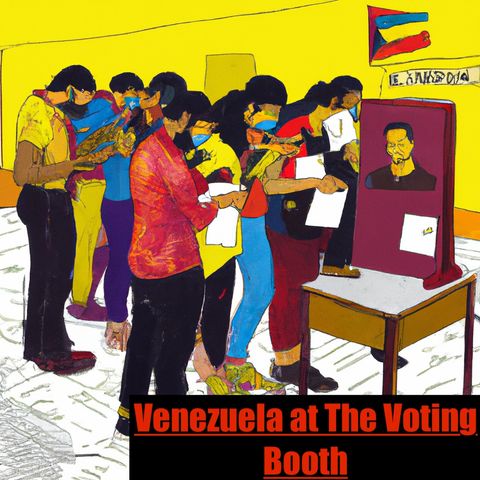Venezuela: A Nation Forged in Struggle and Conflict Venezuela, a South American nation nestled on the Caribbean coast, boasts a rich and tumultuous history, marked by both periods of prosperity and strife. From its colonial roots under Spanish rule to its current status as a resource-rich yet politically challenged nation, Venezuela's story is one of resilience, struggle, and diplomatic tensions. Colonial Era and the Struggle for Independence Venezuela's history can be traced back to the 16th century when Spanish conquistadors arrived seeking gold and other riches. The indigenous inhabitants, primarily the Caribs and the Arawaks, faced subjugation and decimation under Spanish rule. In 1810, Venezuela embarked on its fight for independence from Spain, led by Simón Bolívar, a visionary military leader who became known as the "Liberator of South America." After years of armed conflict, Venezuela finally secured its independence in 1821, joining the newly formed Gran Colombia federation. Post-Independence Era: Political Turmoil and Resource Wealth Venezuela's post-independence era was characterized by political instability, economic fluctuations, and a series of coups and dictatorships. The country's vast oil reserves, discovered in the early 20th century, brought both wealth and challenges, as oil became a central pillar of the economy and a source of political power struggles. Territorial Disputes with Neighbors Venezuela's borders have been a source of contention with its neighbors, particularly Guyana and Colombia. The dispute with Guyana over the Essequibo region, which encompasses two-thirds of Guyana's territory, remains unresolved despite international mediation efforts. In the case of Colombia, border tensions have flared over the Gulf of Venezuela, a maritime area rich in oil and natural gas. The two countries have engaged in diplomatic disputes and occasional naval skirmishes over the rights to these resources. Chávez Era and the Bolivarian Revolution Hugo Chávez, a charismatic military officer, emerged as a dominant figure in Venezuelan politics in the late 1990s. His populist and socialist-inspired Bolivarian Revolution promised radical social and economic reforms, appealing to many Venezuelans seeking change. Chávez's presidency was marked by significant changes, including the nationalization of industries, land reforms, and social welfare programs. He also forged close ties with other left-wing governments in Latin America, challenging the traditional dominance of the United States in the region. Post-Chávez Era and Continued Challenges Following Chávez's death in 2013, his successor, Nicolás Maduro, continued his policies, facing growing economic hardship and political opposition. Venezuela's economy has spiraled into a deep recession, marked by hyperinflation, shortages of basic goods, and widespread discontent. The Maduro government has been accused of authoritarianism, human rights abuses, and corruption, further deteriorating relations with the United States and other Western countries. Venezuela's Future: Navigating Challenges and Seeking Stability Venezuela's future remains uncertain as it grapples with complex political, economic, and social challenges. The country's vast resources offer the potential for prosperity, but the path to stability and sustainable development is fraught with difficulties. Despite the challenges, the Venezuelan people have demonstrated remarkable resilience throughout their history. Their ongoing struggle for a more just and equitable society is a testament to their determination to shape a better future for their nation. Thanks for listening to Quiet Please. Remember to like and share wherever you get your podcasts
mostra menos

